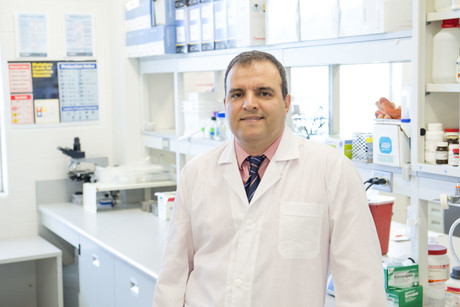When immune cells turn toxic

A subpopulation of immune cells that normally fend off pathogens can turn against the host during certain infections, an international research team has revealed.
Led by Dr Mansour Haeryfar from Western University, Canada, the researchers found that these immune cells, called mucosa-associated invariant T (MAIT) cells, can mount a rapid and robust inflammatory response that may contribute to severe organ damage or even death due to infections that lead to toxic shock syndrome — a life-threatening inflammatory response brought on by exposure to bacterial superantigens, which are toxins harboured and secreted by certain common bacteria. Counterintuitively, it is not the bacteria or its toxins that make toxic shock fatal, but rather the overzealous inflammatory response triggered and perpetuated by the immune system.
The researchers used both animal models and human cells to demonstrate the hyper-responsiveness of MAIT cells to systemic exposure to bacterial superantigens. The team also demonstrated that as MAIT cells responded to superantigens, they began to develop signs of exhaustion and failure to participate in antimicrobial host defence. This exhaustion may lead to immunosuppression, which can also have fatal consequences due to increased susceptibility to secondary, opportunistic infections.
“In this context, MAIT cells are actually disease causing as opposed to protective,” said Dr Haeryfar. “We have shown that MAIT cells are the most powerful source of an inflammatory mediator called interferon-γ, thus likely contributing to morbidity associated with toxic shock syndrome and similar superantigen-mediated illnesses.”
Based on these findings, published in the journal PLOS Biology, “we propose that timely and efficient therapies that target MAIT cells will likely benefit the patients by preventing uncontrolled inflammation and also by relieving immunosuppression”, said Dr Haeryfar.
Parkinson's alters emotion-related bodily sensations
People with Parkinson's disease were found to have significant differences in all bodily...
Softer tumours fuel spread of triple-negative breast cancer
A metabolic 'survival switch' controlled by the stiffness of triple-negative breast...
Maternal protein intake affects offspring's facial features
New study findings emphasise the importance of maintaining a well-balanced diet during pregnancy,...







